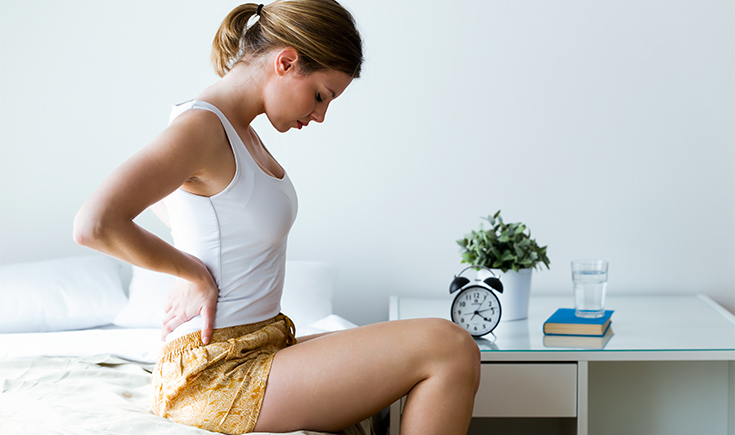

Before trying to conceive, you might not have given ovulation much thought, but if you’re planning to have a baby, it’s probably constantly on your mind. For the majority of women, pregnancy really just comes down to that little window of fertility each month.
Although ovulation only lasts about 24 hours, the five days before ovulation, along with the day you ovulate, are the days when you are most likely to conceive.
Sperm can live for up to five days inside your body, so if you have sex during this time, you can potentially get pregnant. After ovulation, your egg can only live for 12-24 hours, so you will need to wait until the following month to try again.
If you’ve started tracking your menstrual cycle, you might have noticed the more obvious tell-tale sign of ovulation: a stringy cervical mucus with an egg-white consistency.
But, you might not have picked up on some other subtle bodily cues that are actually ovulation symptoms. If you’ve been trying to get pregnant for some time, we hope you find this list helpful.
6 Ovulation signs you may not be aware of
Ovulation usually happens about halfway through your menstrual cycle, but the exact time can vary. Your chances for getting pregnant are at their highest in the few days before and during ovulation, so look out for these signs that you’re about to ovulate:
1. Lower back pain
You might experience mild cramping and lower back pain, similar to PMS, just before or during ovulation.
2. Ovulation pain
Mild or sharp pain halfway through your cycle (known as mittelschmerz pain) is usually harmless, but although uncomfortable, can be a good indicator that you’re ovulating. See your GP if the pain lasts longer than 3 days and is associated with bleeding.
3. Increased sex drive
This is one of the lesser-known signs of ovulation, but if you feel more in the mood before ovulation, go for it! We’re biologically wired to reproduce, so our bodies are pretty amazing like that.
4. Breast tenderness
If you notice breast or nipple discomfort, don’t worry, this pain won’t last long. It’s a result of the surge in progesterone that occurs when you ovulate.
5. Changes in body temperature
When you’ve just ovulated, your body temperature may increase slightly, so the optimum time is 2-3 days before this happens. If you’re using temperature as a means of tracking when you’re most fertile, you might learn your pattern over time. Read more here.
6. It hurts to sit down
If you’re sensitive to the surge in progesterone, everything around your cervix during ovulation might be achy and irritated.
Other ways to increase your chances of getting pregnant
- Use an ovulation calendar
- Use our ovulation calculator
- Take a prenatal supplement
- Include fertility-boosting foods in your diet
- Manage stress and anxiety























